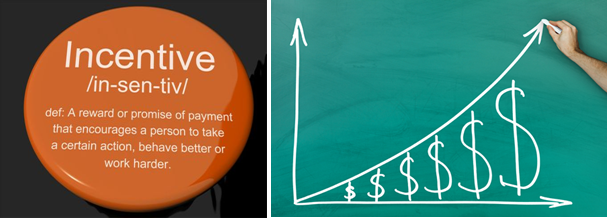
In Part 4 of this 5 part series, let’s take a quick look at the final 3 of these important questions.
3) Should we also have a long‐term incentive plan (LTIP), and if for which employee groups?
- We believe that if your company that has a plan for long-term growth it should have a long term incentive plan (LTIP). Your LTIP strategically communicates that goal to employees, along with “What Is In This For Me” — at Trinity, we believe WIIT-FM is a radio station every employee will listen to.
- An LTIP should be encompass the behaviors and results needed to be achieved if your company vision of the future is to become a reality.
- When properly structured, an LTIP can be funded from the added value it creates — rather than being an additional expense line item.
4) What type of long‐term plan is best?
- There are multiple forms of LTIPs, including types that enable privately-owned companies not to give up any portion of their ownership.
- Each option has its own advantages and disadvantages — depending on the objectives the organization wants to achieve. There is no one plan that is best for all companies.
 The best option for your company will be the plan type that most helps you to accomplish what you desire to.
The best option for your company will be the plan type that most helps you to accomplish what you desire to.
5) If I implement a plan, how will I know it’s been successful?
- The overarching purpose of incentive plans is to frame an organization’s financial partnership with its employees in the context of its value creation and value sharing philosophy.
 Did I hear someone say, I thought the purpose was to enhance our company’s ability to attract top talent and motivate them so as to retain.
Did I hear someone say, I thought the purpose was to enhance our company’s ability to attract top talent and motivate them so as to retain.
 Of course you want your incentive plan to do those two things—and they will as natural byproducts of incentive compensation plans are properly:
Of course you want your incentive plan to do those two things—and they will as natural byproducts of incentive compensation plans are properly:
- Designed
- Communicated
- Managed
These filters actually learn from use behavior on which spam is and which is sale (purchase cialis online) not.
![]() So the best way to determine the success of incentive plans is to assess if they are achieving your objectives and the accompanying byproducts.
So the best way to determine the success of incentive plans is to assess if they are achieving your objectives and the accompanying byproducts.
CONCLUDING COMMENT
On the basis of what’s been written in this series of articles, the answer to the question of “do incentive plans work?” is yes – if your properly designed, communicated and managed plans:
1) Define value creation – Effective plans reflect the company’s philosophy about what it means to create value and that incentives should be “self‐financed”; they should be paid out of the company’s increased productivity and profits.
2) Define value sharing – Effective plans present the opportunity for employees to share in the value that they help create, through a reliable mechanism.
3) Reinforce instead of force behavior – Effective plans don’t try to change the behavior of an employee through compensation manipulation. They are designed to reward the achievement of well‐defined outcomes within the framework of a clearly defined financial partnership.
For more information:
E-mail us at info@TrintyHR.net
Visit our website at www.TrinityHR.net
Call us at 856.905.1762 or toll free at 877.228.6310
HOW TRINITY CAN HELP:
Trinity’s Team has extensive experience in custom designing highly effective incentive compensation plans, along with a relevant, results-driven performance management system.
You have HR QUESTIONS…Trinity HAS ANSWERS!